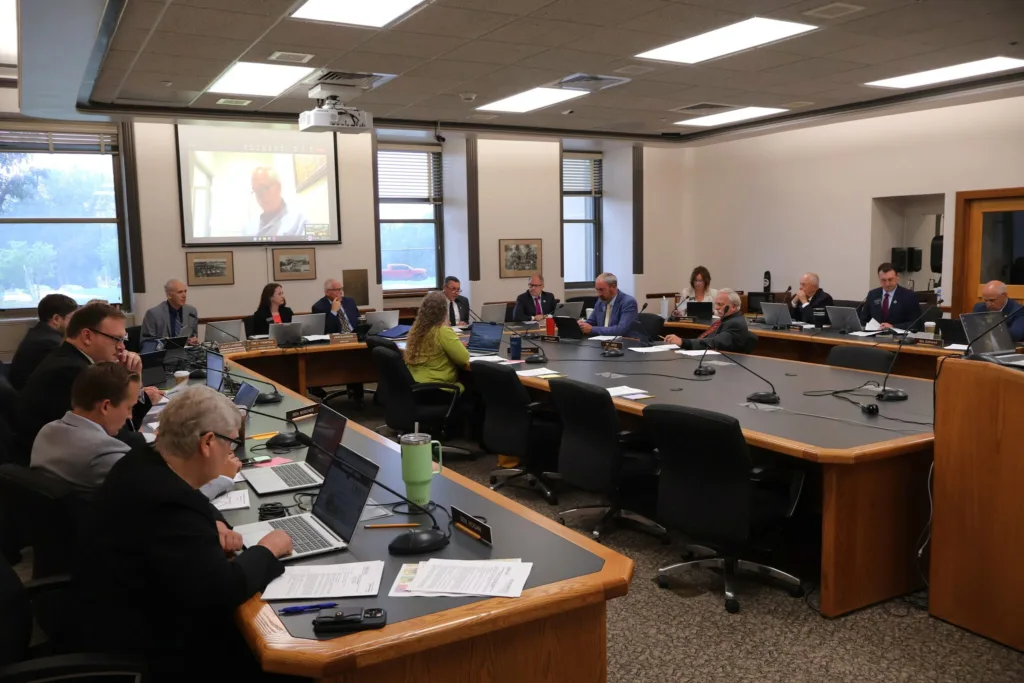

By: Amy Dalrymple (ND Monitor)
North Dakota legislative leaders are scheduled to go into a closed-door session on Friday to discuss a possible lawsuit over a veto error.
It’s a conversation that should happen out in the open because lawmakers should be transparent about their thinking and decision-making.
The interim Legislative Management Committee is weighing next steps, including legal action or a possible special session, after a snafu with Gov. Kelly Armstrong’s line-item veto of some housing funds.
Armstrong intended to veto $150,000 in one-time funds for a Native American homeless liaison, but a red X on the bill returned to Legislative Council also crossed out $25 million for a housing program and $10 million to combat homelessness.
Armstrong’s office has described it as a “staff markup error.” Attorney General Drew Wrigley reviewed the matter and concluded Armstrong was clear about his intent in his veto message. Wrigley’s opinion governs what public officials do unless his decision is challenged in court.
But attorneys for the Legislature have raised concerns about setting a precedent that could have unintended consequences in the future. They argue Wrigley’s opinion conflicts with a 2018 North Dakota Supreme Court opinion that said a governor cannot withdraw a veto. They also question why Wrigley doesn’t mention the 2018 opinion in his analysis.
Legislative Management discussed the matter in public last month. Members directed their attorneys to further explore the pros and cons of legal action, such as petitioning the Supreme Court for an injunction or other remedy.
Friday’s meeting will be in public, though lawmakers will be participating remotely. The agenda has an executive session “for the purpose of attorney consultation regarding actions available to the Legislative Assembly, including litigation,” related to the veto. It cites statutes that allow exemptions from the open records and open meetings laws for attorney work product, attorney consultation and negotiation preparation.
Lawmakers would have to come back into an open meeting to take any votes or other action. But as someone who’s sat in the hallway for more than a few executive sessions, what often happens is the bulk of the decision-making unfolds behind closed doors. The public portion is typically a very brief vote with little to no discussion.
Even though lawmakers can use attorney consultation to justify a closed-door session, it doesn’t mean they have to. They can choose to do their jobs in front of their constituents.
It’s worth noting that the statute says an executive session may be held “only when an open meeting would have an adverse fiscal effect” on the bargaining position of the public entity. It’s questionable whether that applies here.
It’s also unclear if any legal memos produced for legislators to review on Friday will be public. I inquired with Legislative Council and was told that it likely depends on the outcome of the executive session.
Lawmakers have already had preliminary discussions with their lawyers on this. What do they gain from secrecy? Other than perhaps sidestepping an uncomfortable public discussion about the governor and the attorney general.
If the Legislature takes action, whether that’s a lawsuit or a special session, it’s going to cost tax dollars. That discussion ought to be held in view of the taxpayers.